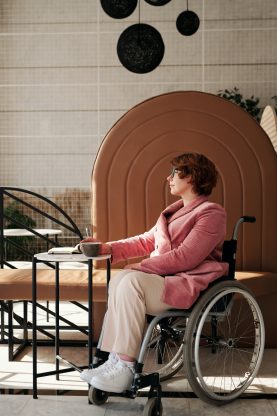Table of Contents
Establishing Communication Channels
One of the most important aspects of having an emergency plan in place for your babysitter is establishing clear communication channels. Make sure your babysitter knows how to reach you in case of an emergency, whether that means calling you directly, contacting a trusted neighbor, or calling emergency services. It’s also a good idea to provide your babysitter with a list of important phone numbers, such as the pediatrician’s office, poison control hotline, and relatives or friends who can assist in an emergency.
On-Demand Childcare in Your Neighborhood
Book a Sitter
Providing Emergency Contact Information
In addition to providing your babysitter with important phone numbers, make sure they have access to all necessary contact information in case of an emergency. This includes your home address, directions to the nearest hospital, and any relevant medical information about your child, such as allergies or pre-existing conditions. Having this information readily available can save precious time in a crisis situation and ensure that your child receives the care they need as quickly as possible.
Outlining Emergency Procedures
Another key component of an emergency plan for your babysitter is outlining specific procedures to follow in different emergency scenarios. This can include what to do in case of a fire, medical emergency, natural disaster, or other unforeseen events. Make sure your babysitter knows the location of all emergency exits in your home, how to administer basic first aid, and when to contact emergency services. Role-playing different scenarios with your babysitter can help them feel more prepared and confident in their ability to handle emergencies.

Creating a First Aid Kit
No emergency plan is complete without a well-stocked first aid kit. Make sure your babysitter knows where the first aid kit is located in your home and how to use its contents. Stock the kit with essentials such as bandages, gauze, antiseptic wipes, adhesive tape, scissors, and a thermometer. Additionally, consider including any medications that your child may need in case of an emergency, such as an EpiPen for severe allergies.
Regularly check the expiration dates of the items in the first aid kit and replenish any supplies that have been used or are out of date.
Rehearsing the Plan
Once you’ve established communication channels, provided emergency contact information, outlined procedures, and created a first aid kit, it’s important to rehearse the emergency plan with your babysitter. Practice different scenarios and make sure your babysitter knows exactly what to do in each situation. Discuss any questions or concerns they may have and provide reassurance that they are prepared to handle emergencies. Remember, preparation is key when it comes to keeping your child safe, and having an emergency plan in place for your babysitter can give you peace of mind when you’re away from home. By taking the time to create a comprehensive plan and communicate it effectively to your babysitter, you can ensure that your child is in good hands no matter what challenges may arise.










